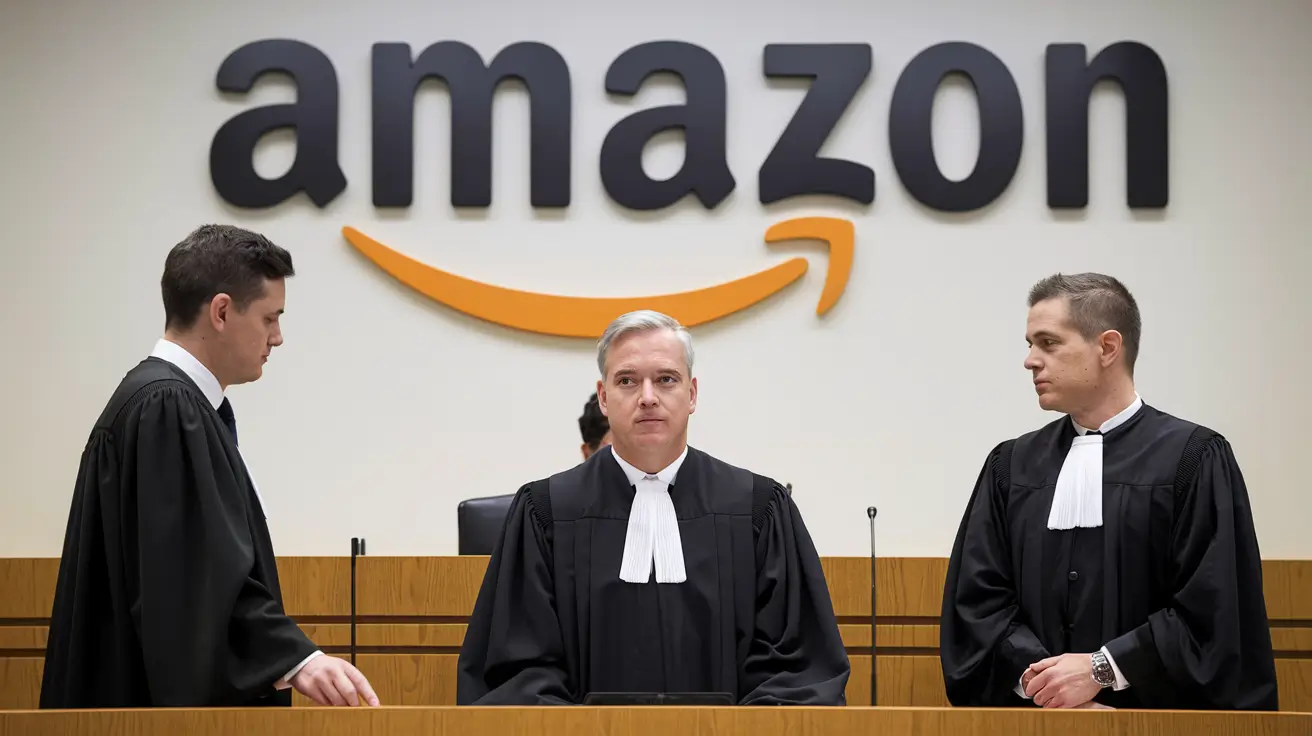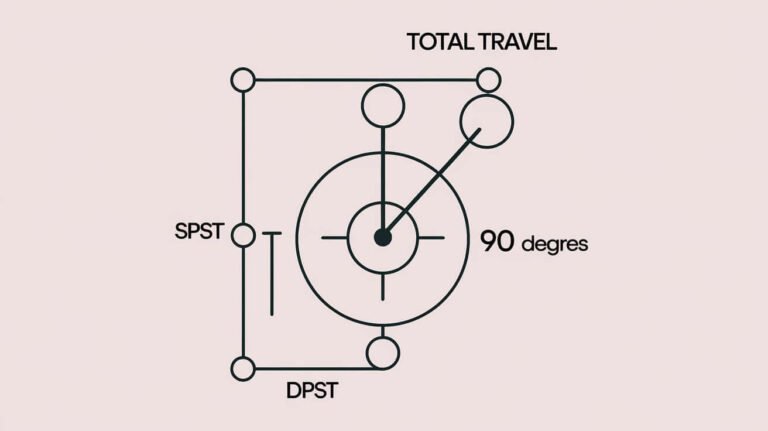How to Sue Amazon: 6 Powerful Reasons to Sue Today
If you’ve had an issue with Amazon that cannot be resolved through customer service or other means, you may be wondering, How to sue Amazon? Amazon is one of the largest online retailers in the world, but even large corporations are not immune to legal challenges. Whether you’re dealing with a product defect, a service failure, fraud, or issues with Amazon’s policies, you may be entitled to take legal action. However, suing Amazon is a complex process that requires understanding your legal rights, the steps involved, and the challenges you may face.
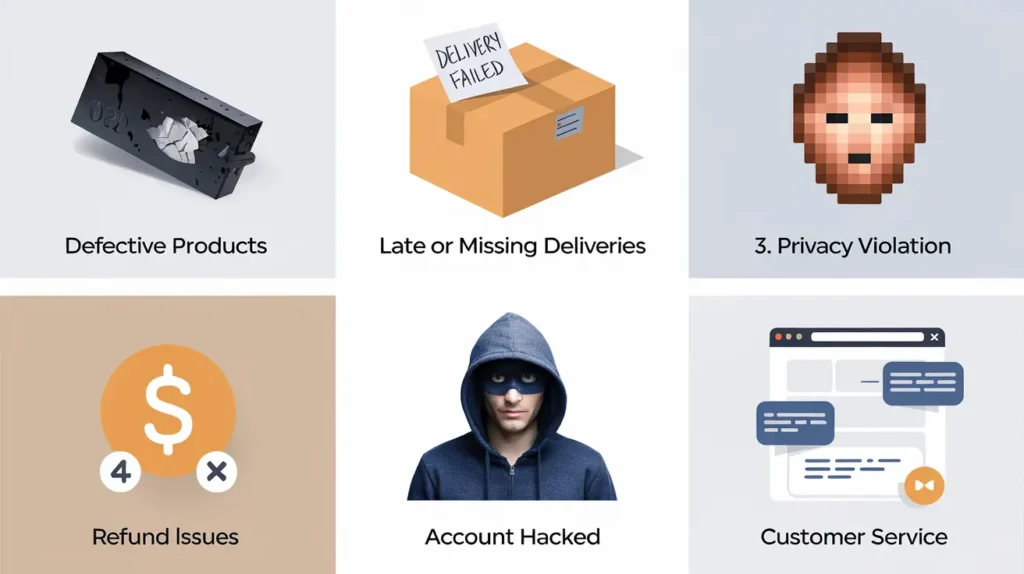
This guide will walk you through the key steps involved in suing Amazon, the types of legal claims that can be filed, and how to proceed with the litigation process.
Table of Contents
Reasons Why You Might Need to Sue Amazon
There are a variety of reasons why a consumer may find it necessary to sue Amazon. Below are some common scenarios:
Product Defects and Malfunctions
If you purchased a product from Amazon and it was defective, damaged, or malfunctioned after purchase, and Amazon or the seller refuses to provide a refund or replacement, you might consider legal action. Product liability claims can be filed when a product causes injury, damage, or harm.
Billing Issues and Unauthorized Charges
Sometimes customers experience issues with billing, including unauthorized charges, duplicate transactions, or errors in the price of goods or services. If Amazon fails to correct these errors after multiple attempts, you may have grounds for legal action.
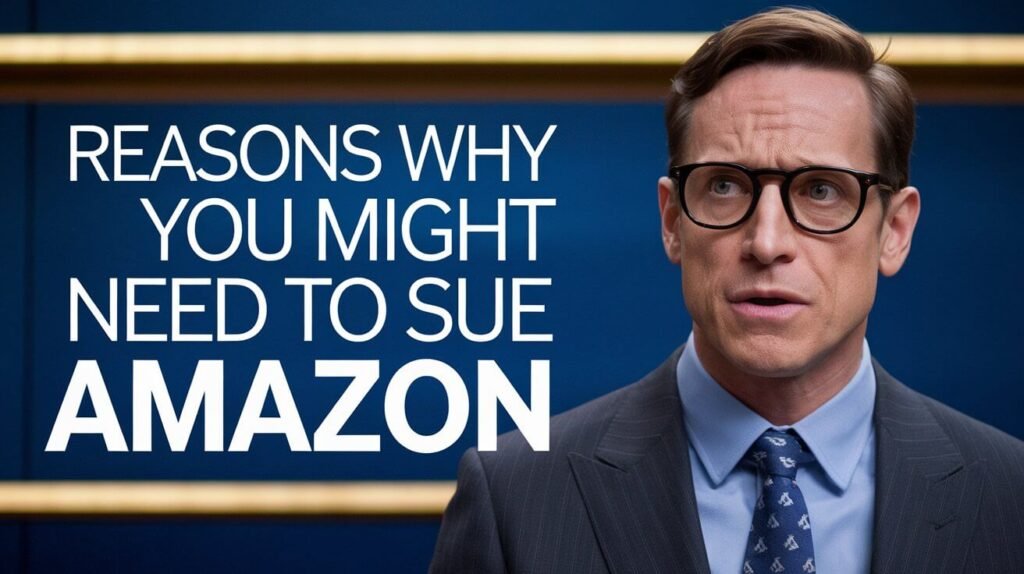
Breach of Contract or Service Disputes
If Amazon fails to fulfill its promises or terms of service, including missed deliveries, failure to honor warranties, or noncompliance with service agreements, you may file a lawsuit for breach of contract.
Amazon Seller Issues and Customer Complaints
If you’ve had issues with third-party sellers on Amazon, such as receiving substandard products or experiencing customer service failures, Amazon may be held responsible depending on the terms of its marketplace agreements.
Privacy Violations and Data Security Breaches
As a major online retailer, Amazon holds vast amounts of customer data. If there’s a breach of your privacy or a security failure that leads to identity theft or misuse of personal information, you may have a legal claim.
Fraudulent Listings or Misleading Information
If you’ve purchased items that were misrepresented on Amazon’s platform—whether in terms of quality, authenticity, or price—you may have grounds for fraud claims.
Understanding Amazon’s Legal Disclaimers and Terms of Service
Before deciding to sue Amazon, it’s critical to understand the company’s terms of service and legal disclaimers, which can heavily influence your legal options.
Importance of Reading Amazon’s Terms and Conditions
Amazon’s terms of service contain various legal disclaimers and clauses that may limit your ability to sue them. Reading these documents is crucial to understand what actions you can legally take.
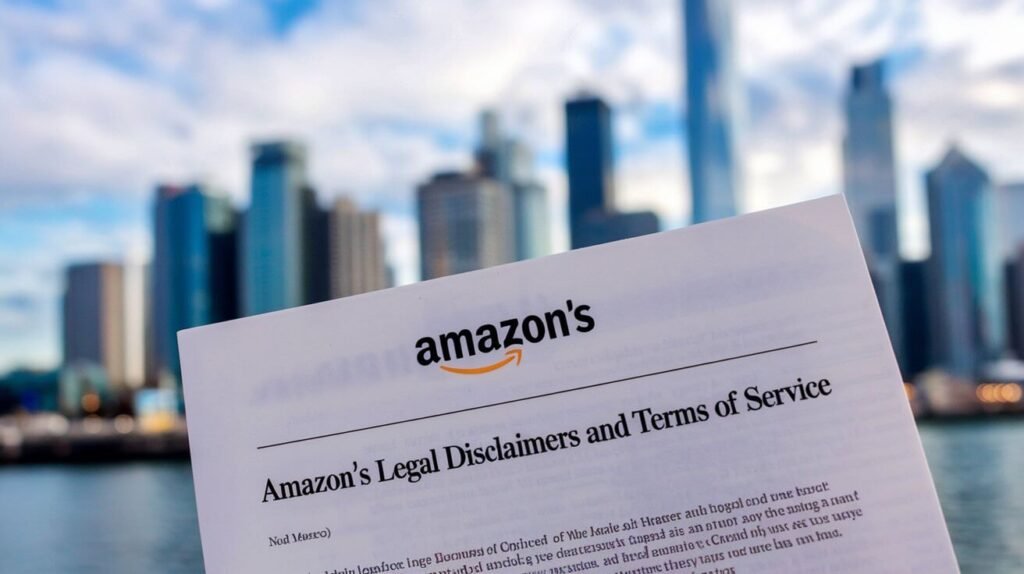
Binding Arbitration Clause: What It Means for You
Amazon includes a binding arbitration clause in many of its contracts. This means that you may be required to resolve disputes outside of court through arbitration, which can limit your ability to take legal action in a traditional court setting.
Class Action Waivers and How They Affect Your Claim
Amazon often includes class action waivers in its terms, meaning that you may not be able to file a class action lawsuit. If you wish to sue Amazon, you may need to file an individual claim rather than join a group lawsuit.
Understanding Dispute Resolution Procedures
Some situations may require you to follow a specific dispute resolution process before taking the matter to court. These procedures are outlined in Amazon’s terms of service, and not following them could affect your legal rights.
Also Read: Why Is Amazon So Slow to Ship? 8 Powerful Factors
Steps to Take Before Suing Amazon
Before pursuing a lawsuit, there are several steps you should take to maximize your chances of success:
Attempting to Resolve the Issue with Amazon Customer Service
Before considering litigation, contact Amazon’s customer service to resolve the issue. Many problems, such as product defects or billing errors, can be resolved by their support team without legal intervention.
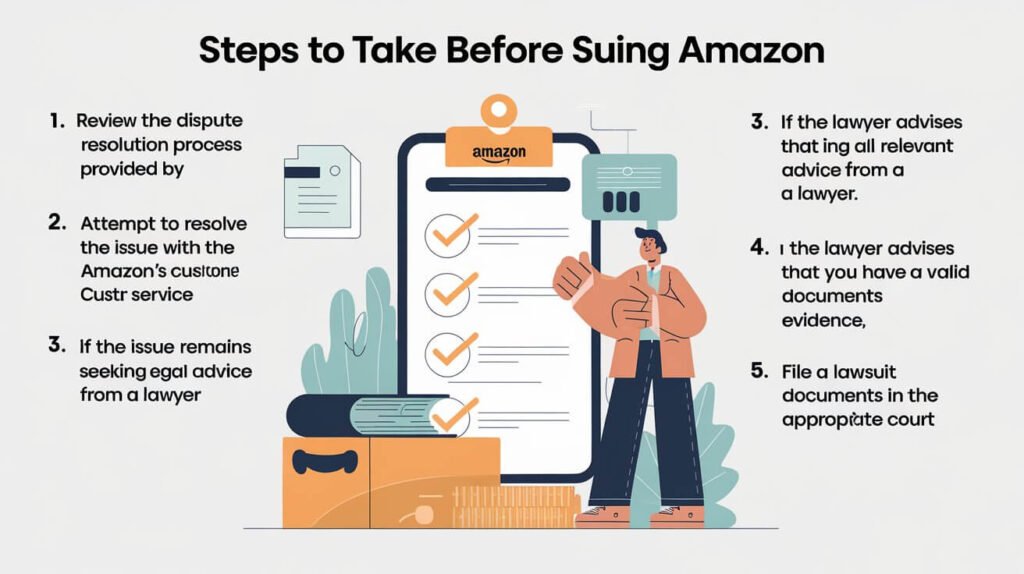
Documenting the Problem and Communication with Amazon
Keep thorough records of all communications, including emails, phone calls, and chat interactions. Documentation is crucial when presenting your case.
Seeking Mediation or Arbitration (If Applicable)
If your contract with Amazon includes mandatory arbitration or mediation, attempt to resolve the issue through these methods before resorting to litigation.
Considering Alternative Legal Action (Small Claims Court)
If the dispute involves a small amount of money, small claims court might be an appropriate and more affordable option.
How to File a Lawsuit Against Amazon
Filing a lawsuit against a large corporation like Amazon can be a daunting task, but it is possible if you believe you have a valid claim. Here’s how to navigate the legal process:
Deciding Which Court to File Your Case In
When filing a lawsuit against Amazon, you’ll first need to determine the appropriate court. In the U.S., there are two primary options: federal court and state court. For most consumer complaints, state court is the usual venue, but if the issue involves federal law, interstate commerce, or if the claim exceeds a certain monetary threshold, federal court may be appropriate.
Preparing Your Legal Complaint and Evidence
Your legal complaint (also called a “complaint” or “petition”) should outline the nature of the dispute, the legal grounds for your claim, and the relief or damages you are seeking. To build a strong case, you’ll need to gather evidence. This could include receipts, emails, screenshots, product descriptions, records of communications with Amazon, or any other relevant documentation.
Determining the Right Legal Venue for Your Case
The venue refers to the geographic location where your lawsuit will be heard. The right venue typically depends on where the events of the case occurred (e.g., where you live or where Amazon operates), but Amazon’s terms of service may specify an agreed-upon jurisdiction for lawsuits. In many cases, Amazon’s terms require disputes to be filed in King County, Washington (Amazon’s headquarters).
Filing the Lawsuit in the Correct Jurisdiction
Once you’ve determined the correct venue, you can file your complaint with the court. If you’re filing in state court, you’ll need to check with your local court to get the proper forms and instructions. Many courts have online systems that allow you to file electronically. If you’re unsure about where to file, a legal professional can guide you through the process.
What Types of Claims Can You Sue Amazon For?
There are several types of legal claims you may have against Amazon. These claims depend on the nature of your complaint and the damages involved. Below are some common claims against Amazon:
Breach of Contract Claims
If Amazon fails to fulfill its end of a contractual agreement, such as failing to deliver products on time or failing to provide services as promised, you might have grounds for a breach of contract lawsuit. These types of claims often focus on Amazon’s failure to adhere to the terms laid out in the agreement (e.g., shipping agreements, warranties, or service terms).
Product Liability and Defective Products
If you have suffered harm from a product purchased on Amazon—whether through injury, damage, or health issues—you might be able to pursue a product liability claim. Amazon could be held responsible if the product was defective or dangerous. You may also be able to file a claim against the manufacturer or the seller who provided the item.
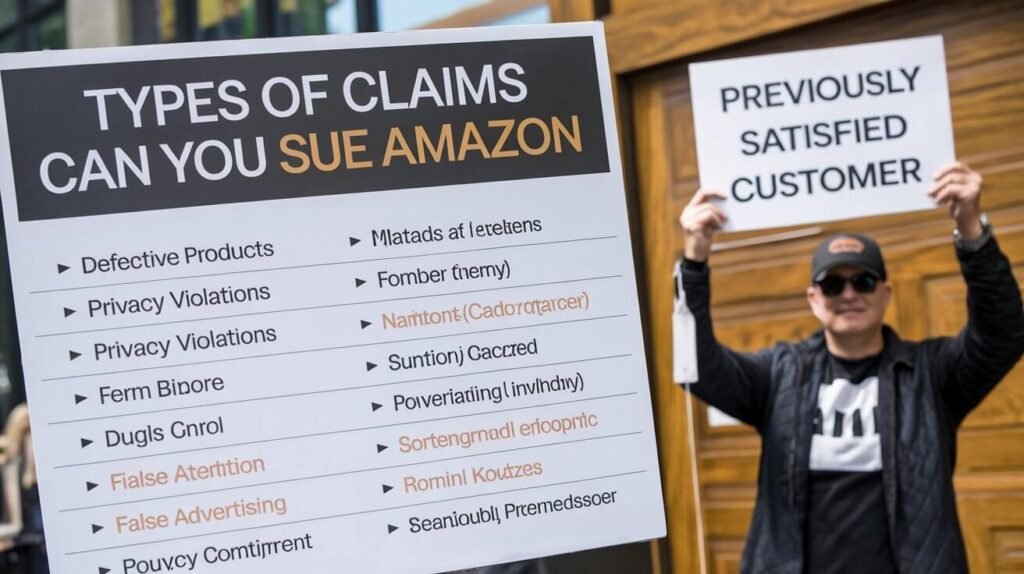
Personal Injury and Harm Caused by Amazon Products
If an Amazon product has caused you personal injury, whether from a physical defect or due to lack of proper warning labels, you may have a claim for negligence or a personal injury lawsuit. Amazon’s responsibility for these injuries may vary depending on whether the product was sold directly by Amazon or a third-party seller.
Consumer Protection Violations
Amazon is subject to various consumer protection laws, especially when it comes to misleading advertising, false claims, or failing to provide accurate information about the product. If Amazon violates these laws, you may be able to bring a lawsuit under local or federal consumer protection statutes.
Intellectual Property Infringement
If Amazon is selling counterfeit products or infringing on your intellectual property (patents, trademarks, copyrights), you may be able to sue them for damages. This is particularly relevant for businesses or individuals whose products are being sold without authorization on Amazon.
Discrimination or Unfair Treatment Claims
If you believe that you have been discriminated against by Amazon due to your race, gender, religion, or another protected status, you may be able to file a lawsuit under federal or state anti-discrimination laws. Similarly, if Amazon’s practices have resulted in unfair treatment, you could seek damages under consumer protection laws.
Read About: Insurance Company Suing Me for Damages: 3 Shocking Types
How to Sue Amazon in Small Claims Court
If your dispute with Amazon involves a smaller amount of money (usually under $5,000 to $10,000 depending on your state), you may consider small claims court as a more cost-effective and faster alternative to filing a formal lawsuit.
What is a Small Claims Court?
Small claims court is designed to handle minor disputes where the amount of money involved is relatively low. It is typically quicker and simpler than formal litigation, and you are often allowed to represent yourself without the need for a lawyer.
The Benefits of Filing in Small Claims Court
The biggest advantage of filing in small claims court is that the process is streamlined, and you don’t need to deal with the complexities of a formal court case. Additionally, the court fees are often lower, and you don’t need to hire an attorney.
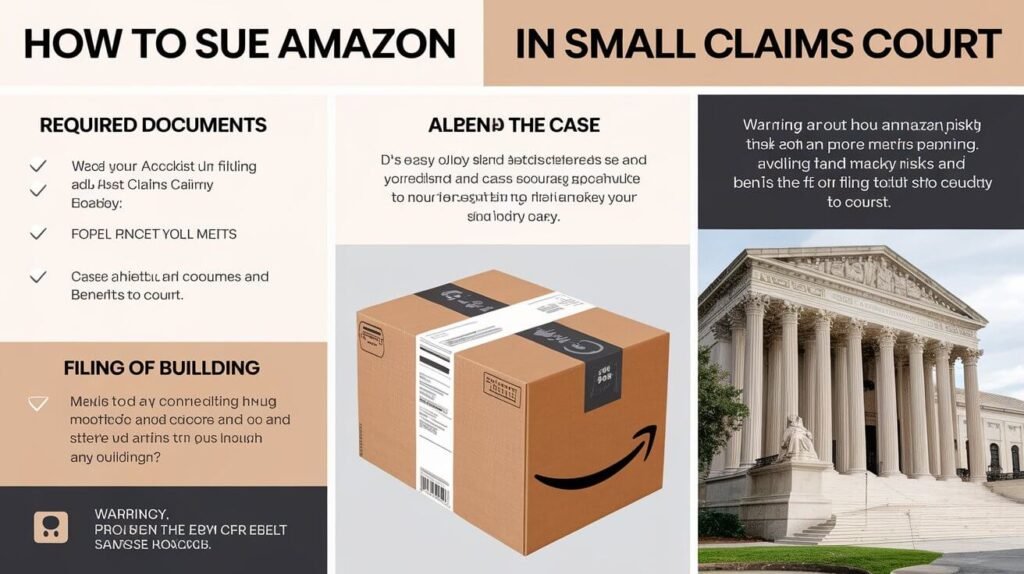
Small Claims Court Limits for Lawsuits Against Amazon
Each state has different limits for small claims court. In general, small claims courts handle cases where the amount sought is below $5,000 to $10,000. Before you file, check your state’s small claims limit and confirm that the amount you’re claiming qualifies for this venue.
Filing Procedures in Small Claims Court
To file in small claims court, you’ll need to fill out a complaint form, pay a filing fee, and schedule a court date. In most cases, the court will provide instructions on how to serve Amazon (or the third-party seller) with a copy of the claim. Be sure to follow the instructions carefully to avoid delays.
What to Expect During a Small Claims Hearing
At the hearing, both parties will have the opportunity to present their case. You’ll need to provide evidence, such as receipts, emails, or other documentation supporting your claim. Amazon may send a representative to contest the case. After hearing both sides, the judge will make a decision, and you’ll be informed of the ruling.
Hiring an Attorney to Sue Amazon
In some cases, especially if the claim is more complex or involves a substantial amount of money, hiring an attorney may be necessary.
When to Hire a Lawyer to Handle Your Case
If your case involves significant damages or complicated legal matters, hiring an experienced attorney is recommended. Lawyers with expertise in consumer law, product liability, or contract disputes can help you navigate the legal process and increase your chances of winning.
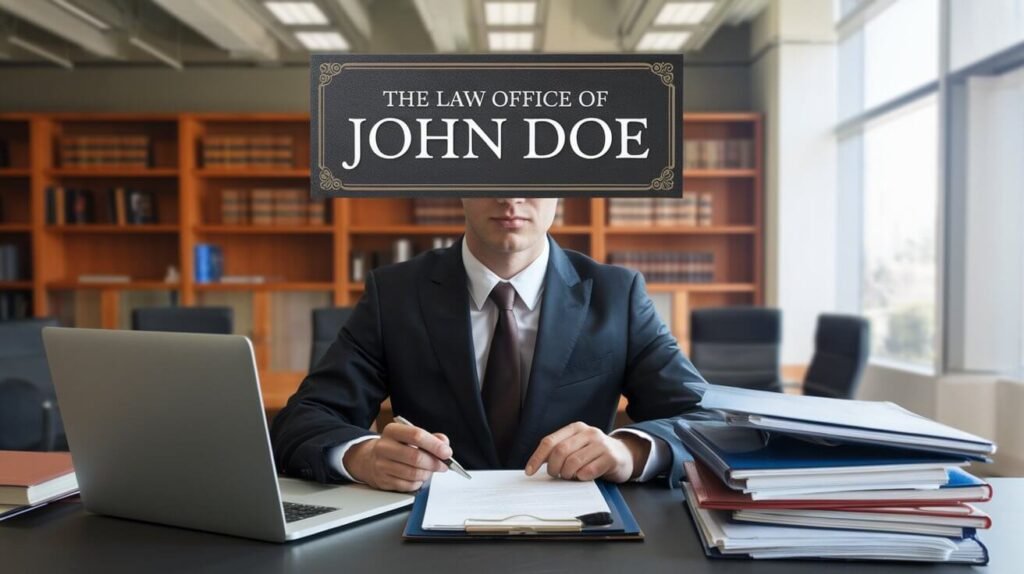
Finding an Attorney with Experience in Consumer Law
Look for attorneys who specialize in consumer protection or business litigation. Many law firms offer free consultations, so it’s worth speaking to a few before deciding which one is right for you.
Legal Fees and Costs Associated with Hiring an Attorney
Legal fees can be substantial, but in some cases, the lawyer may work on a contingency basis, meaning they only get paid if you win the case. Always inquire about fees upfront and consider how much you are willing to spend on legal services.
How Attorneys Can Help You Win Your Case
An attorney can assist you with legal research, drafting your complaint, filing the lawsuit, collecting evidence, negotiating with Amazon’s legal team, and representing you in court. With the right lawyer, you can maximize your chances of a successful outcome.
What Happens After You File a Lawsuit Against Amazon?
Once you have filed your lawsuit, Amazon will typically respond with a legal defense. They may dispute the claims, request additional information, or try to settle the case outside of court.
Amazon’s Legal Defense and Response
Amazon has a robust legal team that will respond to your complaint. The company may request to have the case dismissed, argue that they are not responsible, or file counterclaims. Be prepared for this and ensure that your evidence is solid.

Possible Outcomes of Your Lawsuit
There are several possible outcomes when suing Amazon, including a court ruling in your favor, a settlement, or dismissal of your case. Many cases are settled before going to trial, but others may go through a lengthy litigation process.
Negotiating a Settlement or Reaching a Settlement Agreement
In many cases, Amazon may offer to settle the case out of court, especially if the claims are valid. Settling can save both parties time and money. If you decide to settle, make sure that the terms are fair and adequately compensate you for your losses.
Trial Process and What to Expect in Court
If the case goes to trial, you and Amazon will present your arguments before a judge (or jury). The trial process can take several months or even years, and you may need to attend multiple hearings before the final ruling is made.
Understanding Amazon’s Legal Defense Strategies
Amazon is a large corporation with substantial legal resources. If you are suing them, it’s important to understand the types of defenses they might use in court.
Common Legal Defenses Amazon May Use
Some common defenses Amazon might employ include arguing that the product met safety standards, that the issue was caused by the buyer’s misuse, or that they fulfilled their contractual obligations. Amazon might also try to invoke their arbitration clause to move the dispute out of court.

How Amazon Protects Itself in Court
Amazon’s legal team will likely argue that the case lacks merit or that they are not liable for the problem. The company will also attempt to demonstrate that the case should be dismissed based on jurisdiction or contractual clauses.
Counterclaims Amazon Might Assert Against You
Amazon may assert counterclaims against you, such as alleging that you violated their terms of service or that you misused the platform in some way. Be prepared for Amazon to mount a robust defense.
How to Combat Amazon’s Legal Defenses
Prepare your case thoroughly and ensure that you have sufficient evidence to combat Amazon’s legal defenses. Understanding the legal arguments Amazon might present is key to ensuring that you have a strong counter-argument. Consult with an attorney if necessary, especially if the case becomes complicated or involves significant legal hurdles.
Risks and Challenges of Suing Amazon
While suing Amazon might seem like a viable option to seek justice or compensation, there are several risks and challenges that you must consider.
Legal Costs and Time Investment
One of the most significant challenges of suing Amazon is the potential cost. Legal fees can quickly add up, especially if your case goes to trial. Even in small claims court, you may have to deal with filing fees, court costs, and possibly hiring an attorney. Additionally, the legal process can take time, and you may find yourself dealing with delays, hearings, and long waiting periods.

Potential for a Lengthy Legal Process
Lawsuits, particularly those against large corporations like Amazon, often take a long time to resolve. The discovery process, where both parties exchange evidence, can last months or even years. This can be frustrating, especially if you’re seeking a quick resolution. Even if you win your case, collecting the judgment could also be delayed.
Amazon’s Legal Resources and Power
Amazon has a vast legal team and considerable resources at its disposal. This means they can afford to drag out litigation, file motions to dismiss, and employ high-powered attorneys to defend their position. As an individual, you may feel outmatched, and this can make the process intimidating.
Risk of Losing the Case and Possible Consequences
If you lose your lawsuit, you may be required to pay Amazon’s legal fees or face other penalties. Additionally, there’s the possibility that you might not get any compensation or damages for your claim, making it essential to carefully evaluate the strength of your case before moving forward.
Alternative Dispute Resolution Options: Mediation and Arbitration
Before heading to court, it’s worth considering alternative dispute resolution methods like mediation and arbitration. These can often provide quicker and more affordable solutions.
What is Arbitration?
Arbitration is a private form of dispute resolution where an independent third party, the arbitrator, hears both sides and makes a binding decision. It’s faster than litigation, but it may not always be in your favor, especially since Amazon’s terms of service often include an arbitration clause. This means that you may be required to arbitrate your dispute instead of suing in court.
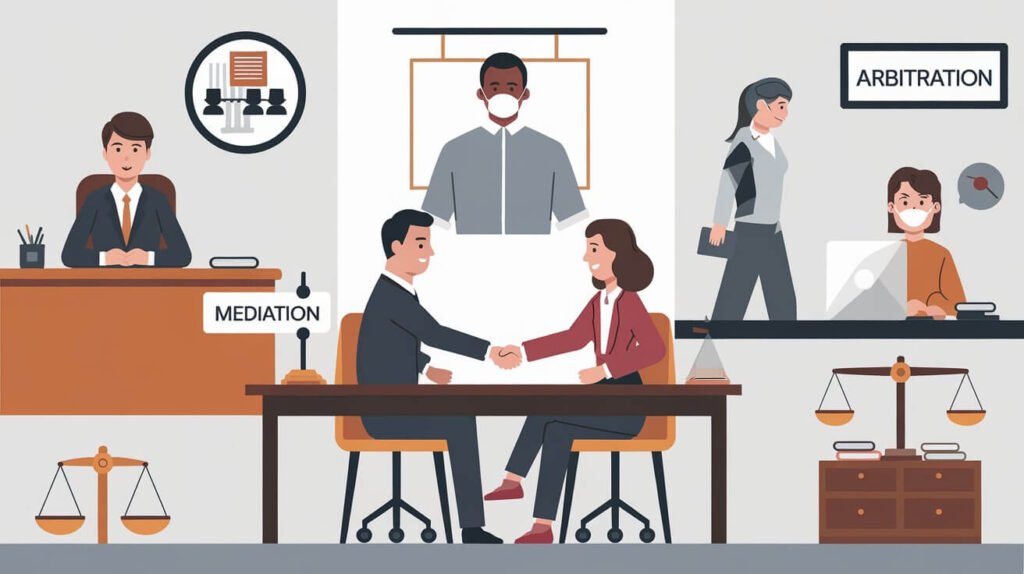
How Mediation Works and Why It Might Be Better
Mediation is another alternative where a neutral third party helps both sides reach a voluntary agreement. It’s generally less formal and more collaborative than arbitration or litigation, and it allows you to negotiate a solution without a court ruling. Mediation can often result in a more amicable and quicker resolution, saving time and legal fees.
Amazon’s Arbitration Policy and How It Affects You
Amazon’s terms of service often mandate that disputes must be resolved through arbitration rather than in court. This means that unless you’ve opted out of arbitration (within a specified time frame), you may be required to arbitrate your case instead of taking it to court. While arbitration is faster, it may limit your legal rights, such as the right to appeal.
How to Choose Between Litigation and ADR
Before deciding whether to litigate or engage in alternative dispute resolution (ADR), consider the nature of your claim, the potential costs, and the likelihood of a favorable outcome. Mediation may be best for less severe disputes, while arbitration or litigation may be more appropriate for cases involving significant financial damages or legal precedents.
How to Handle Amazon’s Response to Your Lawsuit
After you file your lawsuit, Amazon will likely respond with a legal defense. How you handle Amazon’s response can significantly impact the outcome of your case.
Amazon’s Likely Legal Responses
Amazon’s legal team will typically respond to your lawsuit by either filing a motion to dismiss, arguing that they are not liable for the issue, or requesting arbitration based on the terms of service. They may also attempt to reach a settlement or negotiate a resolution.
Preparing for Discovery and Evidence Exchange
During the discovery phase, both sides exchange evidence that is relevant to the case. This may include documents, communications, and other materials that can help build your case. Be sure to keep thorough records and maintain organized documentation of all correspondence and evidence.
Negotiating with Amazon’s Legal Team for a Settlement
Before going to trial, Amazon’s legal team may offer to settle the case. This could involve financial compensation, a product return or replacement, or another remedy. While settlements can be appealing because they save time and money, ensure that the terms are favorable and meet your needs. If you choose to settle, make sure that the agreement is legally binding and fair.

Preparing for Trial if a Settlement Is Not Reached
If no settlement is reached and your case proceeds to trial, you’ll need to prepare for a courtroom battle. This includes presenting your evidence, questioning witnesses, and arguing your case in front of a judge or jury. Trials can be long and expensive, so it’s important to work closely with your attorney (if you have one) to ensure that your case is well-prepared.
Avoiding Legal Problems with Amazon in the Future
Even if you decide not to sue Amazon or your case is resolved, you’ll want to take steps to avoid similar issues in the future. By being proactive, you can protect your rights as a consumer and reduce the chances of needing to take legal action again.
Best Practices for Dealing with Amazon as a Consumer
Familiarize yourself with Amazon’s terms of service, return policies, and dispute resolution procedures before making a purchase. Knowing what to expect can prevent misunderstandings and help resolve issues more quickly.
Avoiding Common Issues and Disputes
Common issues with Amazon include delayed deliveries, billing discrepancies, and product quality concerns. By checking reviews, verifying product descriptions, and understanding the return policy, you can minimize the likelihood of these issues occurring.
Ensuring Clear Communication with Amazon
If you run into a problem, contact Amazon’s customer service as soon as possible and keep records of your communication. Document the issue thoroughly and follow up regularly to ensure that it is being addressed.

How to Safeguard Your Rights as an Amazon Shopper
Be mindful of Amazon’s policies, including its return and refund policies, warranties, and customer satisfaction guarantees. Knowing your rights will make it easier to resolve disputes and take legal action if necessary.
Can people sue Amazon?
Yes, individuals and businesses can sue Amazon under certain circumstances, such as:
- Consumer Issues: Failure to refund, defective products, or delayed deliveries.
- Employee Claims: Wrongful termination, discrimination, or workplace injuries.
- Seller Concerns: Withheld funds or unfair business practices.
Amazon’s Terms of Service often require disputes to go through arbitration, but some cases may still proceed in court.
How to make a claim against Amazon?

Follow these steps to make a claim:
- Contact Amazon Customer Support: Try resolving the issue through chat, phone, or email.
- File a Formal Complaint: Use Amazon’s internal escalation processes or submit a claim via their A-to-Z Guarantee for purchases.
- Consider Legal Action: If unresolved, consult a lawyer. Small claims court may be an option depending on the dispute.
What is the biggest lawsuit against Amazon?
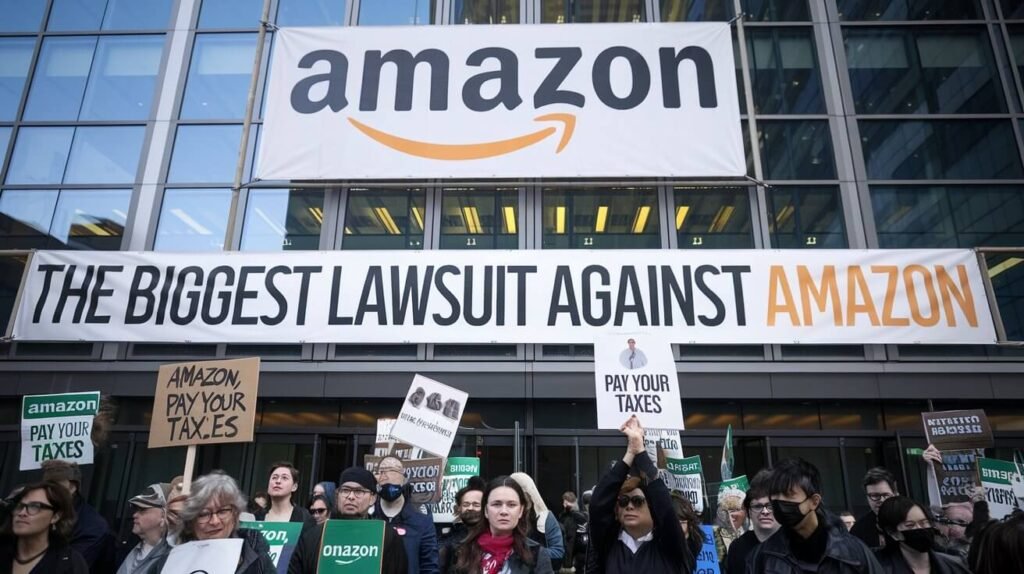
One notable lawsuit is the FTC’s antitrust case against Amazon, accusing it of:
- Illegally maintaining monopoly power.
- Stifling competition in the online marketplace.
Other significant cases include: - Consumer Product Liability: Amazon held accountable for defective products sold by third-party vendors.
- Employee Class Actions: Allegations of wage theft, unsafe working conditions, or discrimination.
Can I sue Amazon for not refunding?
Yes, you can sue Amazon if:
- You’ve made repeated refund requests without resolution.
- The issue violates Amazon’s refund policies or consumer protection laws.
Steps:
- File a complaint through Amazon’s A-to-Z Guarantee.
- If unsuccessful, consider suing in small claims court for amounts under your jurisdiction’s limits.
How to file an Amazon complaint?
To file a complaint:
- Customer Service: Start with the Help section on Amazon’s website or app.
- Escalate Internally: Request escalation to a higher department or the Executive Customer Relations Team.
- External Complaints: File with organizations like the Better Business Bureau (BBB) or a consumer protection agency.
What to do about Amazon delayed delivery?
If your Amazon delivery is late:
- Check Tracking Information: Verify the package status.
- Request a Refund: Use Amazon’s late delivery refund policy for eligible orders.
- Contact Customer Support: Request compensation or expedited shipping.

Can Amazon refund for late delivery?
Yes, Amazon may offer refunds or credits for late deliveries if:
- You are a Prime member and the delay violates their delivery guarantee.
- The item is eligible under their policy.
Contact customer service to request compensation.
What are some notable Amazon lawsuits?

Examples of lawsuits against Amazon include:
- Defective Products: Amazon held liable for injuries caused by third-party seller items.
- Antitrust Violations: FTC accusing Amazon of stifling competition.
- Employment Disputes: Cases related to wrongful termination, unpaid wages, or discrimination.
How to sue Amazon for a refund?
Steps to sue Amazon for a refund:
- Gather Documentation: Collect order details, communication with Amazon, and refund policy violations.
- Attempt Arbitration: Required by Amazon’s terms for most disputes.
- File a Small Claims Case: If arbitration fails, file in your local small claims court for eligible amounts.
How to sue Amazon as an employee?
If you are an employee suing Amazon:
- File a Complaint with HR: Attempt to resolve the issue internally.
- Consult a Lawyer: Seek legal advice for claims such as wrongful termination or discrimination.
- File a Lawsuit or Complaint: Depending on the issue, you may file with:
- EEOC (Equal Employment Opportunity Commission) for discrimination.
- A civil court for wrongful termination or unpaid wages.
How to find a lawyer to sue Amazon?

Look for:
- Employment Lawyers: For workplace-related disputes.
- Consumer Protection Attorneys: For refund or defective product issues.
- Commercial Lawyers: If you’re a seller disputing withheld funds or contract terms.
Platforms like Avvo, LegalMatch, or your local bar association can help you find qualified legal representation.
How to sue Amazon for wrongful termination?
Steps for wrongful termination claims:
- Document Evidence: Keep records of emails, reviews, and disciplinary actions.
- File a Complaint with EEOC: If the issue involves discrimination or harassment.
- Hire an Employment Lawyer: To assess your claim and guide you through litigation.
Can you sue Amazon for emotional distress?

Yes, but proving emotional distress requires evidence, such as:
- Documentation of the distress caused by Amazon’s actions (e.g., loss of income, reputation damage).
- Medical or psychological records.
Such claims are more successful when tied to other legal violations, like discrimination or wrongful termination.
Can I sue Amazon for late delivery?
You can sue for late delivery if:
- The delay caused financial loss.
- Amazon’s delivery guarantee was violated.
Most claims are settled through Amazon’s customer service or arbitration rather than courts.
How to sue Amazon KDP (Kindle Direct Publishing)?

For disputes with Amazon KDP:
- Review the KDP Agreement: Understand the terms you agreed to.
- File a Formal Complaint: Escalate within Amazon before considering legal action.
- Arbitration: Required for most cases under the KDP terms.
- Legal Action: Consider small claims court for royalties disputes or consult an intellectual property lawyer.
Can I sue Amazon in small claims court for seller funds?
Yes, sellers can sue Amazon in small claims court if:
- Funds are withheld without justification.
- Amazon has failed to respond to disputes or arbitration.
Ensure your claim is within the court’s monetary limits.
How is the FTC suing Amazon for illegally maintaining monopoly power?
The FTC alleges that Amazon:
- Suppresses competition by penalizing sellers offering lower prices elsewhere.
- Forces sellers to use Amazon’s fulfillment services.
- Stifles competitors through predatory practices.
The outcome of this lawsuit could reshape the e-commerce industry and impact consumers and sellers alike.
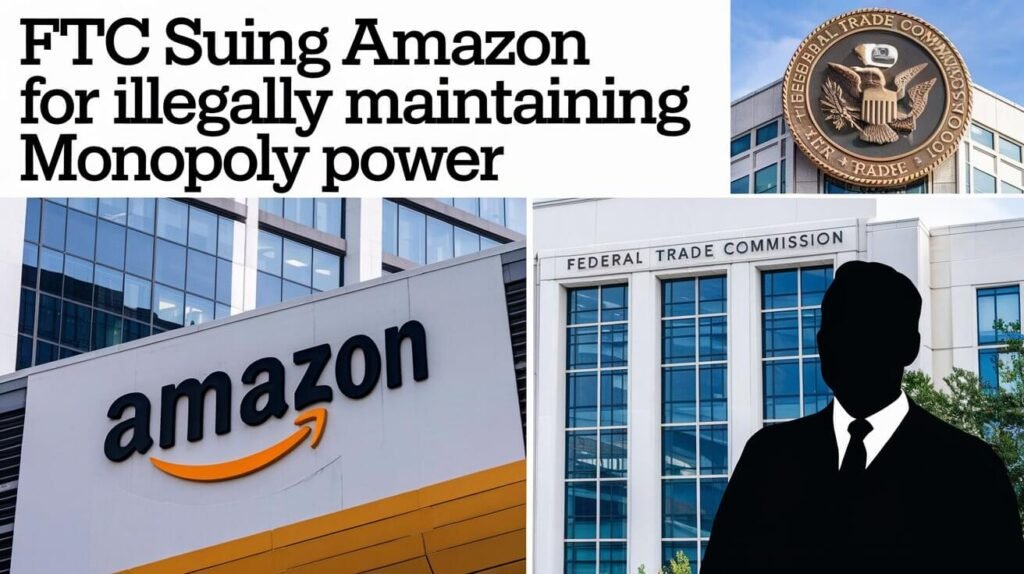
Key Takeaways
- Amazon disputes often require attempts to resolve issues via customer service or arbitration.
- Small claims courts and external agencies like the FTC or EEOC are viable options for unresolved cases.
- Legal advice is crucial for complex cases involving employment, intellectual property, or high-value disputes.
Conclusion
Suing Amazon is not a decision to be taken lightly. While you have the right to pursue legal action if you feel that you’ve been wronged, it’s important to carefully consider your options before proceeding. From understanding Amazon’s terms of service to exploring alternative dispute resolution methods and preparing for a lengthy legal battle, there are many factors to weigh. If you decide to go ahead with a lawsuit, make sure your case is strong, gather sufficient evidence, and consider consulting with an attorney to navigate the complex legal landscape. Remember, while suing Amazon can be challenging, it’s not impossible, and by following the proper steps, you can increase your chances of achieving a favorable outcome.
FAQs: How to Sue Amazon
Can I sue Amazon for a defective product?
Yes, you can sue Amazon if a product you purchased is defective and causes harm or damage. Depending on the nature of the defect, you may file a product liability claim. If Amazon is the seller, they may be held liable, but if a third-party seller is involved, you may need to pursue them directly.
What are the grounds for suing Amazon?
Common grounds for suing Amazon include breach of contract, defective products, personal injury, failure to deliver items as promised, false advertising, product misrepresentation, or violations of consumer protection laws. If you believe you’ve been harmed in these ways, you may have grounds for a lawsuit.
How do I file a lawsuit against Amazon?
To file a lawsuit against Amazon, you’ll need to determine the appropriate jurisdiction, prepare your legal complaint with all relevant evidence, and submit it to the court. You can file in either state or federal court, depending on the circumstances. Many cases are also subject to arbitration, as outlined in Amazon’s terms of service.
Should I hire a lawyer to sue Amazon?
Hiring a lawyer can significantly help if your case is complex or involves substantial damages. A lawyer can help you navigate the legal process, build your case, and represent you in court. However, if your case is small and simple, you may file a claim in small claims court without an attorney.
What is a small claims court and can I sue Amazon there?
Small claims court allows individuals to file lawsuits for smaller disputes, typically under $5,000 to $10,000 depending on the state. If your claim falls within this amount, you can file in small claims court without the need for an attorney. However, Amazon may have its own procedures for handling small claims cases, so be sure to verify the process.
Can Amazon dismiss my lawsuit?
Yes, Amazon may file a motion to dismiss if they believe your claim is invalid or without merit. They may also invoke arbitration, as many of Amazon’s terms of service require disputes to be settled outside of court.
What happens if I lose my lawsuit against Amazon?
If you lose the case, you may not receive compensation, and you could be required to pay Amazon’s legal fees, depending on the court’s ruling. It’s essential to weigh the risks carefully before filing a lawsuit.
Can I sue Amazon if they refuse to refund me?
Yes, if Amazon refuses to honor a refund under its policies or misrepresents its return procedure, you may have a claim for breach of contract or unfair business practices. It’s important to first attempt to resolve the issue through customer service or dispute resolution methods.
Is it worth suing Amazon?
Whether suing Amazon is worth it depends on the specific circumstances of your case, the potential damages, and the costs involved. If the issue involves a large amount of money or significant harm, it may be worth pursuing legal action. However, for smaller claims, alternative dispute resolution methods like arbitration or mediation may be more cost-effective.
How long will it take to sue Amazon?
The timeline for suing Amazon varies depending on whether the case is settled out of court, whether arbitration is involved, or whether it goes to trial. Small claims court cases may resolve in a few months, while more complex lawsuits could take much longer. If you are involved in arbitration, the process may also take several months to resolve.
Can I sue Amazon for issues with third-party sellers?
Yes, you can sue Amazon for issues with third-party sellers, especially if Amazon is directly involved in the transaction. However, if the issue is entirely with a third-party seller, you may need to pursue them separately. In some cases, Amazon may help facilitate refunds or dispute resolution with third-party sellers.
Can Amazon’s legal team block my lawsuit?
Amazon’s legal team can challenge your lawsuit in various ways, such as filing a motion to dismiss or requesting arbitration. They will try to minimize the case’s validity, but it’s up to the court to decide whether your claim has merit.
Can I sue Amazon for violating my privacy?
If Amazon violates your privacy, such as through unauthorized data sharing or failure to protect personal information, you may be able to sue under privacy laws. You should consult a lawyer to assess the strength of your privacy-related claims.
What happens after I file a lawsuit against Amazon?
Once you file a lawsuit, Amazon will respond with a legal defense. The case may go through a discovery process where both sides exchange evidence. You could reach a settlement or proceed to trial. If Amazon prevails, the case is dismissed. If you win, the court will award damages.
Does Amazon offer settlements before court?
Yes, Amazon may offer to settle a dispute before it reaches court. Settlements are common in business disputes, and many cases are resolved outside of court through negotiation. However, make sure any settlement offer is fair and compensates you adequately for your claims.

